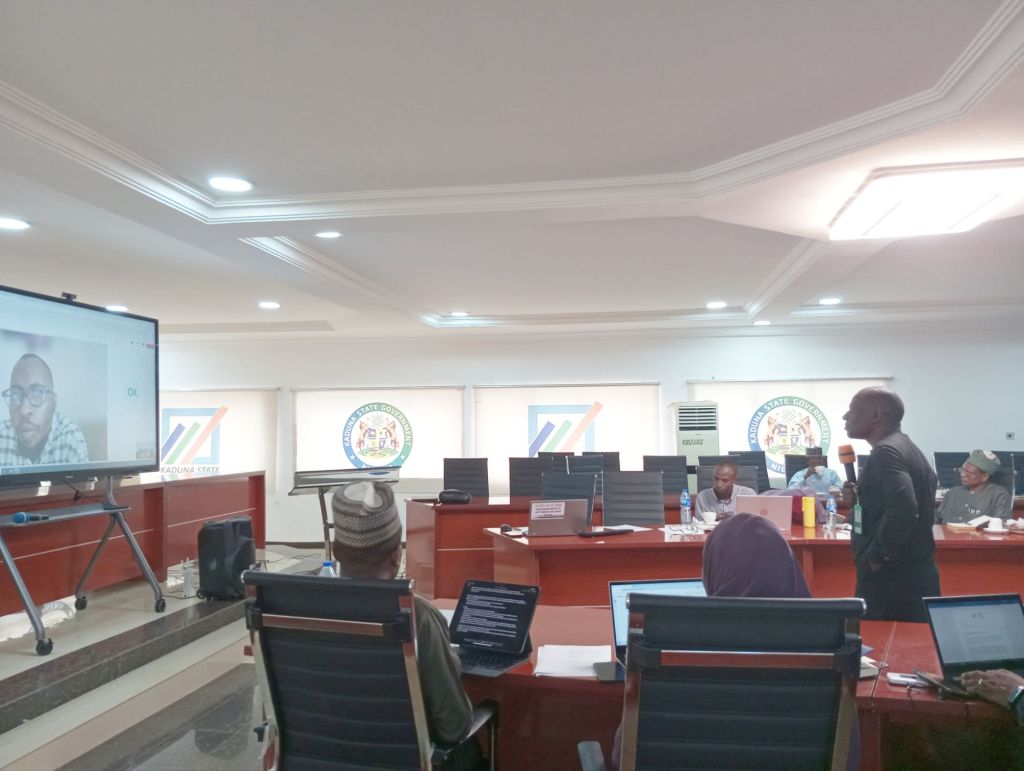By Uangbaoje Alex, Kaduna
Stakeholders in Kaduna State has expressed concerns over government response to citizens feedbacks concerning data shared on its previous portals just as the state is set to launch a procurement information disclosure portal.
The concerns were raised on Thursday, at a one day “User-Centered Co-creation Workshop with stakeholders on Open Contracting for Infrastructure Data Standards (OC4IDS) disclosure portal”.
The workshop was organised by the Construction Sector (CoST) Infrastructure Transparency Initiative International Secretariat in collaboration with Planning and Budget Commission (PBC) and Kaduna State Public Procurement Authority (KADPPA).

The stakeholders which compromises the Civil Societies, Government, Private sector and the Media expressed displeasure over how the state government handled the previous portals they had launched.
They also raised issues over the sustainability of the proposed portal and called on government to harmonise her point of information disclosure to enable citizens have a one stop point to access information about the state.
Responding to the concerns, Engr. Sanusi Yaro, the Director General (DG) of Kaduna State Public Procurement Authority (KADPPA), said the previous portal became empty because the system was going through a transition.
“Unfortunately, there was problem with the payment and the portal was off. All our data has been on that portal. But we developed another one which is called the normal solution portal in 2023 which is full of information,”. He stated.
The DG, noted that one of the major challenges facing procurement data collection in the state was the fact that most of the MDAs have challenges of working enablers for information storage, which sometimes delay or thwart information from being accessed by those who needed them.
He therefore said that his agency has all it takes and that it’s putting all the necessary infrastructure in place to ensure that the new portal is regularly populated with data and well maintained.
“This is why i created the e-procurement unit at KADPPA which allows procurement officers in MDAs to come to us and upload their information for us to see.
“We will identify one procurement officer in each of the MDAs, so we can buy desktop for them for the particular purpose of offloading information from their own end,” Sanusi, said.
On his part, the CoST Manager of Kaduna State, Tara Jeremiah, disclosed that CoST international Secretariat is supporting the state as a member to build a platform that would be disclosing information about projects.
According to him, the idea is to continue fighting corruption, promote transparency and accountability.
He stressed that it was very important for the citizens of Kaduna because people who were elected into public offices should be accountable to them, which underscored the need for the citizens to be informed on what the Government is doing.
“A lot of money goes into infrastructure across the budget cycle yearly. It is important that we improve transparency in that area.
“What the portal will help do when we design it is that it will disclose information about 40-data points which included impact assessment, disclose how much Government is spending on project.
“It will also disclose the status of projects. If it is abandoned, the people will be able to see and raise questions and ask Government to act on it so as contractors can go back to site,” He added.
Jeremiah noted that the portal is the first of its kind in Kaduna and Nigeria entirely, noting that they already have the mandate of the governor to strengthen it, and that a formal disclosure mandate in form of an executive order is also expected from the governor.
Earlier in his presentation, Cengkuru Michael, Open Data Specialist at the CoST IT, Secretariat, who facilitated the workshop virtually, noted that OC4IDS is designed to increase efficiency and reduced corruption.
He added that it also engenders transparency which will discourage wasteful practices and fosters more efficient use of resources, improved project management and facilitates better organization and oversight of infrastructure projects.
